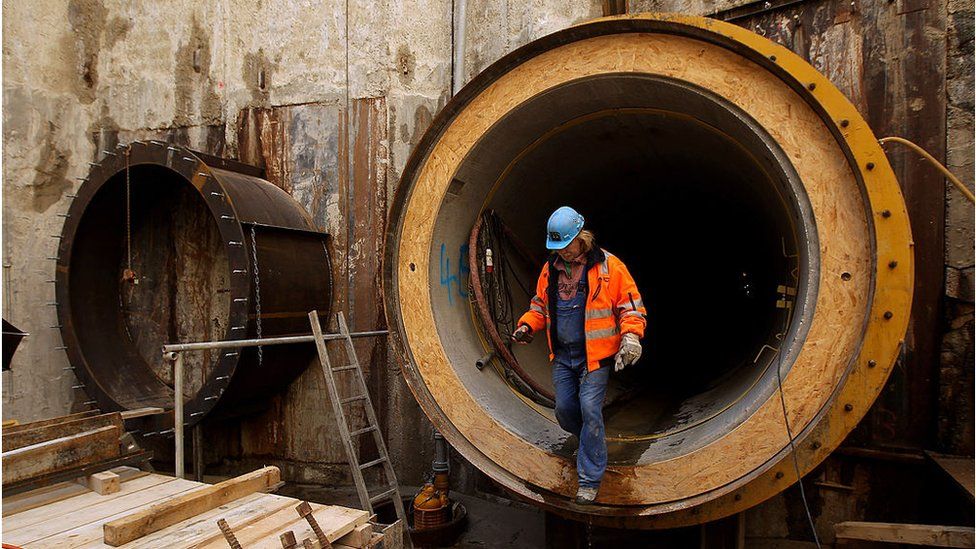- Germany has activated the “alert” phase of its emergency gas plan.
- Gas will also be auctioned off to industry in an effort to encourage companies to reduce their use.
- Some businesses in Germany are already considering turning to other energy sources.
Due to a reduction in Russian supply, Germany has moved one step closer to implementing gas rationing.
According to Germany’s economy ministry, the nation has activated the “alert” phase of its emergency gas plan to address shortages.
It is the most recent development in a dispute over Russia’s invasion of Ukraine between the European Union and Russia.
In reaction to EU sanctions, according to German Economy Minister Robert Habeck, Russia is using gas “as a weapon.”
“We should not deceive ourselves. The reduction in gas supply is [Russian President Vladimir] Putin’s economic assault on us “Germans would need to cut back on their use, Mr. Habeck added.
Insecurity, price increases, and societal division are all part of Putin’s goal, the speaker continued. “We are fighting against this,” someone said.
Gas rationing for German business, according to Mr. Habeck, would “hopefully never” be necessary, but he added: “Of course, I can’t rule that out.”
[embedpost slug=”perhaps-the-worst-week-for-ukraine-since-mariupols-fall/”]
The second phase of Germany’s three-part emergency plan, which is triggered by disruption or extremely high gas demand, has now been initiated.
In an effort to fill gas storage tanks, the German government would finance €15 billion (£13 billion).
In order to encourage large corporations to use less, gas will also begin to be auctioned off to industry.
As the strategy moves into stage two, suppliers and network operators will be under increased pressure to mitigate interruption by taking steps like locating alternate gas supplies.
Although it is technically conceivable under stage two, the nation decided against allowing utilities to pass on rising costs to customers.
Under the first stage of the emergency plan, gas companies were already required to ensure supply, while electricity grid operators were required to maintain grid stability. Gas network operators also had to report to the Economy Ministry at least once per day.
When there is a substantial supply disruption that the market is unable to handle, leading to rationing of commodities, state intervention would take place under the third stage.
In the third stage, gas would still be supplied to homes and vital institutions like hospitals but the supply to industry would be curtailed first.
According to EU climate policy leader Frans Timmermans, reductions in Russian gas imports have now impacted twelve countries in the European Union.
Last week, Russia reduced traffic via its Nord Stream 1 pipeline to 40% of its maximum capacity, alleging equipment issues that had an impact on several nations, including Germany.
From July 11 to 21, when flows will cease, Nord Stream 1 will be undergoing maintenance.
Fatih Birol, the director-general of the International Energy Agency, has cautioned that Russia may completely cut off gas supplies to Europe and that the continent has to start preparing right away.
Due to their failure to abide by a new payment system, Russia has already stopped supplying gas to Poland, Bulgaria, the Netherlands, Denmark, and Finland.
The continued limitations on gas shipments from Russia to Europe, according to Nathan Piper, head of oil and gas research at Investec, is a “worrying trend.”
All bets are off as to what might occur next, he declared. “There is no longer any pretence that Russia is a trustworthy supplier of gas supplies.”
Disrupted gas supplies are “less of an urgent worry” in the summer, but as winter approaches and people require more heating, he said, the situation might get worse.
Gas rationing in Germany “remains to be seen,” but if prices rise throughout the winter, the industry is likely to start on its own since using gas would become unprofitable, he said.
Some businesses in Germany are already considering turning to energy sources that were previously being phased out as a means of coping with a supply crunch.
According to Reuters, rival Lanxess may postpone closing some coal-fired power facilities while chemical giant BASF is examining whether industries could reduce output first.
Kelheim Fibres, which among others provides Proctor & Gamble, is considering converting its gas power plant to run on oil.
According to Wolfgang Ott, who oversees the company’s corporate social responsibility, “oil has only one advantage: supply is secure.”
Coal plants in the UK have been requested to remain open for longer, and the government is debating whether to approve the construction of a new coal mine in Cumbria.
This is despite international efforts to cut back on coal use in an effort to lessen the effects of climate change.
[embedpost slug=”ukrainian-city-severodonetsk-under-massive-russian-bombardment/”]





















